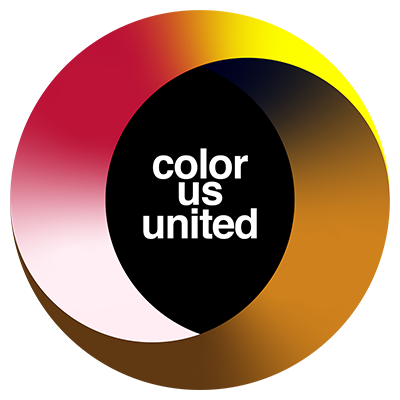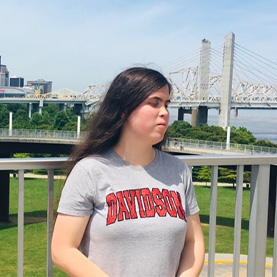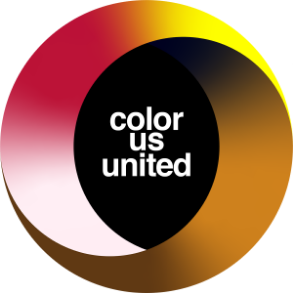Send us tips about what is happening at your institution or company regarding DEI. We want to assure you that any names or responses to this DEI Tip form will remain completely anonymous.
I’m a Blind Woman. Victim Mentality Almost Destroyed My Self-Confidence and My Future.
By Emmie Lo
November 1, 2022
I used to run around the house on my stick horse, racing my siblings or pretending to be chased by bad guys. I couldn’t see, so I got a lot of bruises on my shins and thighs from running into furniture, but I never cared; I always just kept charging onward into the unknown.
This was the attitude with which I approached my life. My parents always encouraged me to dream. I knew I could be anything I wanted. I daydreamed about being the next Hannah Montana. I went through a phase where I fantasized about being one of the first astronauts to explore Mars on foot. I’m not going to pretend there weren’t times where being blind was painful and challenging. I have memories from childhood of feeling isolated and hurt because I wasn’t like other kids. But I never let those moments define me. I never stopped looking forward to my future. I had the assurance that I really could be anything I wanted to be. It might take a lot of extra work and perseverance. It might require imagination and help from other people, but it could be done. I knew that with certainty. And so I looked forward to the future as a world abundant with possibility.
Then I started attending job training programs for blind youth, and everything changed.
These programs are designed to teach blind young people independent living skills they will need in order to obtain and maintain a job. They teach everything from cooking to how to use a talking computer to how to write a resume and succeed in a job interview. These programs do a lot of good. They teach a lot of valuable skills. But these programs also instilled destructive ideas in me that shattered my self-confidence and nearly crippled me with fear over things I could not control.
For every session that had to do with job seeking and job training, each instructor’s message was the same: the world is a prejudiced, discriminatory place for people with disabilities, and the odds are stacked against you no matter what you do, no matter how qualified or determined or hard-working you are. I could not get through one of these programs without hearing several times the bleak statistic that 70 percent of all blind people in the US are unemployed. Another common feature of these programs was discussions about the pros and cons of disclosing your disability to an employer before versus during an interview. We were warned that disclosing your blindness on a resume could result in never getting called for an interview; alternatively, waiting until the interview to disclose your blindness could result in employer’s feeling like they had bene tricked somehow, or just feeling so thrown off balance that they would dismiss you in their minds as incapable of the job on the spot.
Most of these discouraging talking points have blurred together in my mind by now. They sort of morphed into one unhelpful, nagging voice that likes to get loud and remind me of all the “harsh realities of life as a blind person” whenever I’m trying to put myself out there in a new way. But there is one story that sticks out in my mind. One of the instructors at a particular job training program was blind herself. She was a braille teacher at the training center. One day, she gave us all a talk. I think it was supposed to be an inspirational talk; she was trying to demonstrate to us through her experiences that life has a lot of twists and turns, and you don’t always end up in the career where you thought you would be, but everything works out in the end, so there’s cause for hope and reasons to not be anxious. At least, that’s what I think she was trying to tell us. That’s how she tried to conclude her speech. But the takeaway I got from her story was a much sadder, much more defeatist one. She told us that, growing up, she wanted to be a marine biologist. But when she got older, she realized she didn’t have enough vision to be a marine biologist, so she went to college to study music. She would be a violin player. But she soon realized that musicians don’t make any money, so she settled for becoming a braille instructor at a training center for the blind. And that’s how she ended up here. In short, she’d ended up not doing the two things she loved and settled for a job she could do effectively as a blind person without needing many adaptations. So inspiring.
I was maybe sixteen when I heard this “inspiring’ speech, and it, along with all the other negative talking points, had a lasting impact on me in the worst possible way. Instead of being excited for my future, I began to be afraid. From high school all the way through to my senior year of college, before I had even applied to any jobs or attended any interviews, an insidious fear implanted itself in my gut like a hungry parasite, showing me visions of wasting away on my parents’ couch, thirty-five and jobless and blind and hopeless. I was afraid that, no matter how I excelled, no matter how personable I was, potential employers would see me as a drain on their resources and a liability. Why hire someone who may require extra help or expensive technology to be able to do her job, when you could just hire someone who has working eyes and skip all that hassle? I was terrified that no one would ever view me as being able to add value to their company. This fear expanded even beyond the job market. I was afraid that no one would ever view me as capable of being a leader or helping others. They would always see me as the person in need of help. I’d never be the adult in the room; I’d always be seen as less competent at best, treated like a child at worst. And even worse than that, I started to think that maybe these prejudiced prospective employers, prospective employers I hadn’t even met yet, I started to think that maybe they were onto something. Why would I hire myself? I did require extra accomodations and extra help. Did I really have enough talents and skills to outweigh those costs? Could I ever lead anyone? Was I stupid to think that I could not only work a fulfilling job, but be a wife and mother someday?
These insidious doubts made my first search for a fulltime job so much more stress-inducing than it needed to be. I procrastinated filling out job applications because I had such a hard time selling myself and my strengths. By the grace of God, I actually did find a job relatively quickly, with employers who were thrilled to work with me from the moment they hired me and have been nothing but supportive and helpful ever since. But in the first two weeks of working this job, the doubts and insecurities that have had years to build up almost destroyed me. My blindness was posing more challenges and I was needing more extra help from my coworkers than I had anticipated. Suddenly, every belief about not being good enough was seeming to come true. I almost walked away from my job because I was so convinced that they had made a terrible mistake when they hired me, that they should have hired someone who didn’t need so many accomodations and work arounds and could do her job on her own. I stuck it out and pushed through the doubt with the help of friends and family, my faith, and kind encouragement from my bosses, but if I hadn’t had so much support, things might have ended differently; I might have quit and gone home feeling like an utter failure. I’ve come out of all this a stronger and more confident person, but if I hadn’t been repeatedly indoctrinated with negative beliefs about sighted people’s perception of blind people at such a young age, my confidence would never have been so tattered in the first place.
My firsthand experience with victim mentality is why I oppose critical race theory. The last thing black kids need is to be told that they will be discriminated against at every turn, that the whole system is rigged against them, and that nothing they could do can change that fact. These kinds of ideas are poisonous. They will worm their way into young people’s minds and souls, making them feel worthless and believe life is hopeless. They will discourage young black Americans from dreaming big or working hard, because what’s the point if white people have already stacked the odds against them? I know these ideas are toxic, because they were toxic to me. Like the black community, the blind community faces a myriad of challenges; the low unemployment rate is a reality, just as poverty is a reality for many in the black community. But teaching young people that they were predestined to be oppressed and discriminated against is not and will never be the answer.
Emmie Lo
Emmie Lo is a writer and Latin teacher currently living in Jacksonville, Florida. You can read her personal blog at blindgirldreaming.blogspot.com and follow her on Twitter at @teabooksgirl.
REPRESENT ME
Please sign up if you agree with our goal of living in a United and Free America. We will speak out – via all forms of media – against those who claim America is fundamentally a racist, homophobic, anti-Semitic, or anti-Asian society. We will present the caring America that wants liberty and prosperity FOR ALL.
REPRESENT ME
Please sign up if you agree with our goal of living in a United and Free America. We will speak out – via all forms of media – against those who claim America is fundamentally a racist, homophobic, anti-Semitic, or anti-Asian society. We will present the caring America that wants liberty and prosperity FOR ALL.







